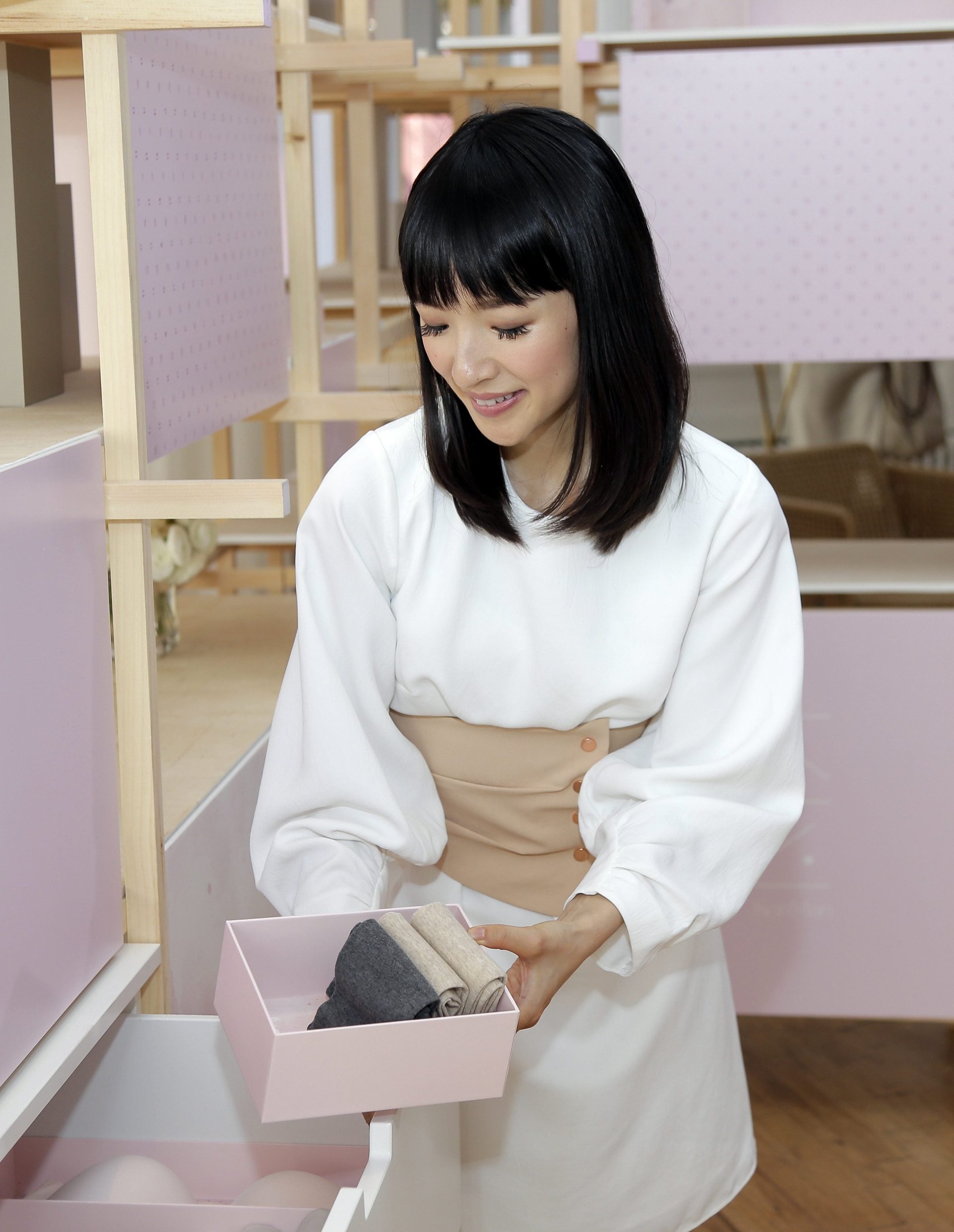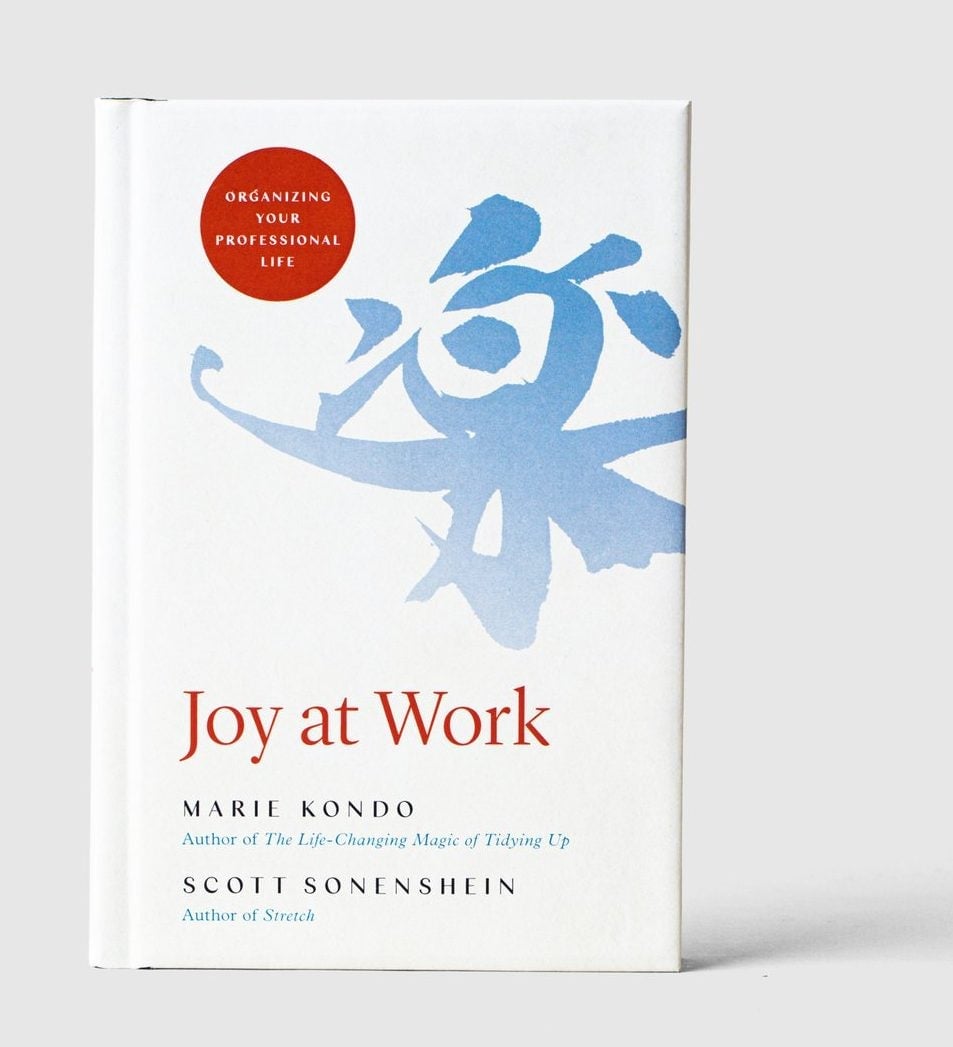Marie Kondo’s strategy for finding joy at home during the coronavirus quarantine
The covid-19 pandemic hasn't dimmed Marie Kondo's joy


The coronavirus hasn’t dimmed Marie Kondo’s joy. The tidying guru appeared to be adapting to the quarantine better than most of us, when she appeared on a Zoom call with Quartz last week. Her Covid-19 coping stratagem predictably involves decluttering, but not for the purpose of allaying boredom or even maintaining a germ-free home.
The experience of being stuck in her apartment during the 2011 Tōhoku earthquake and tsunami somewhat prepared her for spending an extended period indoors, Kondo explains. Speaking through interpreter Marie Iida, she recalls living in Tokyo during the 3/11 disaster, which claimed nearly 16,000 lives. “In Japan, people are used to living side-by-side to natural disasters,” says Kondo, who now lives in Los Angeles with husband and business manager Takumi Kawahara and their two young daughters. “A lot of our practical wisdom is based on preparedness,” she explains.
Her KonMari method—a system that entails ruthlessly throwing out items that don’t “spark joy”—may seem counter-intuitive during a time when most are stocking up pantries and supply closets. But Kondo says cleaning and organizing can be a calming and perspective-generating intervention. Before rushing to buy more groceries, for instance, she says it’s imperative to take stock of what we already have at home, discarding expired canned goods and arranging items so you can clearly see them. “Calmly assessing that is vital,” Kondo stresses. “It’s not knowing that creates even more spirals of anxiety and fear.”
Kondo is particularly enjoying making tsukemono or pickled things, a process that involves fermenting turnips, cucumbers, cabbage and other vegetables in a salt brine or rice bran. “Rather than focusing on buying more, I’ve gotten better at eliminating waste by making the food that I have now last longer. Japanese pickles are nutritious and long-lasting,” she says. Indeed, the ancient food preservation technique has been proven to yield several health benefits, from boosting immune systems to improving digestion.
Her prudence applies to shopping for other staples too. “How much toilet paper do you reasonably need?,” Kondo asks. She says that she’s taught her kids to be “creative” and with the bathroom staple that’s still in short supply in parts of the US. “Stocking our pantry with too much creates this problem of not having enough for everyone. I think it’s very important to ask these questions.”
Clear desks, clear minds
As the global pandemic has forced us to find ways to do our jobs from home, creating a conducive professional environment has become especially urgent, Kondo points out. This is the thesis of her newest book, Joy at Work: Organizing Your Professional Life. Co-authored by Rice University management professor Scott Sonenshein, the slim volume teems with evidence on how reckoning with our messy desks, cluttered inboxes, and packed meeting calendars can ultimately foster happier careers.

In the book, Kondo and Sonenshein challenge the hypothesis that a messy desk is an indicator of a creative genius, like in the case of Albert Einstein, Apple founder Steve Jobs, or Zappos CEO Tony Hsieh. Several studies posit that a neat desks can signal a conventional thinker while a messy one indicates a willingness to embrace novelty. But Kondo and Sonenshein counter that messiness cost companies billions of dollars each year: $8.9 billion for lost paperwork and physical files, $420 per employee on forgotten passwords and a staggering $37 billion in unproductive meetings, citing published research about the effects of organizational clutter.
Kondo, who keeps a phone charger, a pair of reading glasses and a silver tuning fork next to her computer, says it ultimately doesn’t matter if we work on a clear desk, like she does, or embrace the Einsteinian helter-skelter model. Going through the process of wading through the unopened mail, paperwork, books and sentimental bric-a-brac triggers one to reflect on one’s career path. “Tidying is much more than sorting things and putting them away,” Kondo writes. “The goal…is to begin a dialogue with yourself.”
🎧 For more intel on optimizing your workspace, listen to the Work Reconsidered podcast episode on office design. Or subscribe via: Apple Podcasts | Spotify | Google | Stitcher.
As she confessed in her book, not everything in life sparks joy. Ultimately, the act of clearing away what’s not needed can foster, if not happiness, at least gratitude. Holding every object in our hands to appraise its joy-giving quotient, as the KonMari method prescribes, demonstrates the considerable abundance we enjoy. “I think it’s a good time to tidy and reflect on what we have in our lives and be grateful for them,” says Kondo.